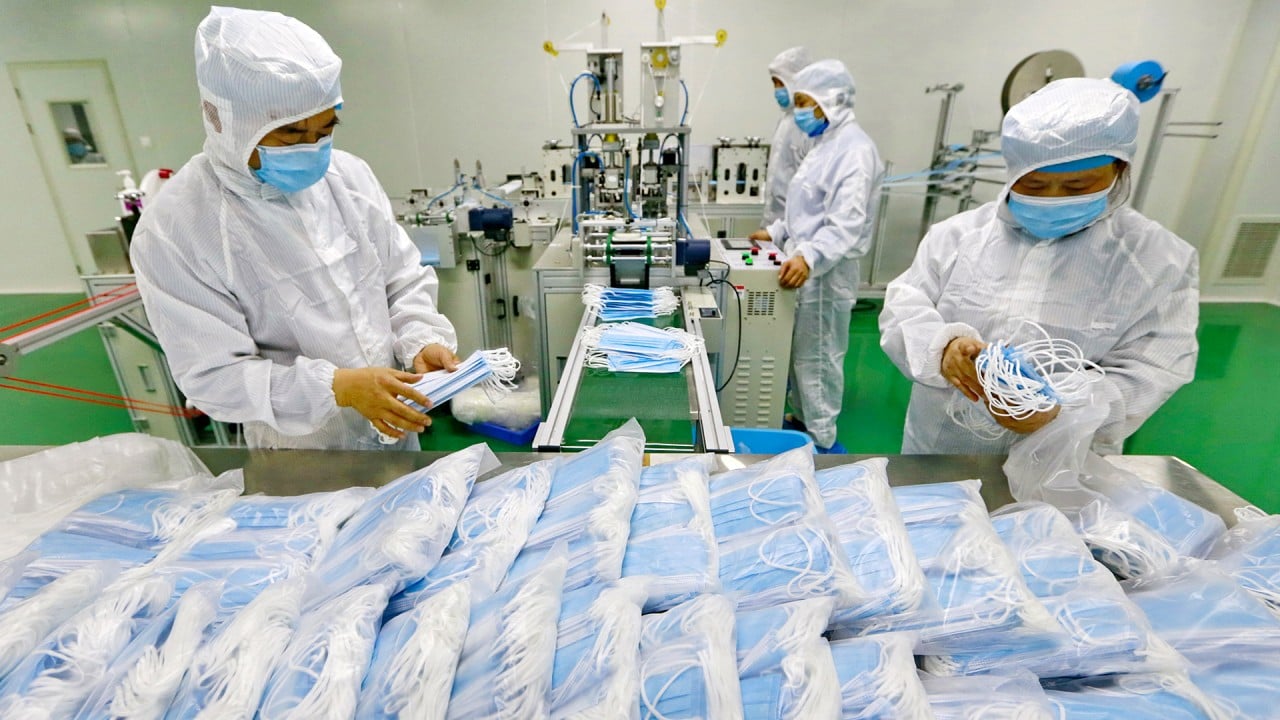
01:39
Face mask shortage amid coronavirus pandemic reminds world of China’s manufacturing dominance

When the governor of Arizona declared a Covid-19 emergency in March, China-based game designer Simon Chioni decided to buy masks to send home to his family. Little did he know how hard it would be.
The problem was not finding vendors – there were plenty online. But those he contacted were evasive about the specs and quality of their products, quoted huge mark-ups, wanted to charge extra for a small order, and asked him to handle shipping to the United States.
“[People back home] said it sounded like too much trouble to bother with,” said Chioni, who asked to use a pseudonym out of concern speaking publicly might affect his employment.
A month later he gave up. He was out of his depth, and he was not alone.
As the new coronavirus has spread around the globe, infecting nearly 4.9 million people and killing more than 323,000, everyone from fretful family members to companies and foreign governments have turned to China to urgently supply medical gear and buttress underprepared health systems.

01:39
Face mask shortage amid coronavirus pandemic reminds world of China’s manufacturing dominance
The pandemic’s ground zero is also the world’s top maker of surgical masks and a primary exporter of scrubs, gloves, coronavirus test kits and medical ventilators. But global demand is outstripping supply, leading to months-long backlogs at Chinese factories.
Desperate buyers, many with little experience of doing business in China, have scrambled to secure medical protective equipment at astronomical prices. Export restrictions that appear to change with the wind have confounded customs workers and scuttled shipments.
And con artists in China have fed off the frenzy with promises to source medical goods they cannot or will not deliver. To lure overseas buyers into making a purchase, they often make seductive sales pitches, claim false connections with legitimate medical manufacturers, flaunt authentic-looking paperwork and guarantee a speedy passage through customs.
Michael Crotty, whose Shanghai-based firm Golden Pacific Fashion & Design is making face masks for export, said the “chaos and dysfunction is hard to describe”.
Posing as prospective buyers, the South China Morning Post spoke to about a dozen people in China who said they could procure face masks, thermometers, goggles, hazmat suits, Covid-19 test kits, ventilators and other gear for export.
Some were listed on large online business platforms, while others got in touch via what appeared to be mass emails offering product catalogues.
One seller, Zhang Shijun, claimed to represent a company called China Shanghai Qianyang Intelligent Equipment.
Over WeChat, he said he could source 1,000 invasive ventilators – breathing machines used in hospitals to keep the sickest Covid-19 patients alive – for a total of 370,000 yuan (US$52,000). For comparison, Britain’s health service is thought to have only around 10,900 of the sought-after devices.
When Zhang sent a product catalogue with ventilator models, none appeared to be made by Shanghai Qianyang. Instead, they were produced by the medical arm of Beijing Aerospace Changfeng.
To underline his bonafides, Zhang sent screenshots of a permit to make medical devices, quality certification, a test report, a business license and certificates that showed the machines complied with European Union regulations.
Yet, the paperwork bore the name of a firm based in Tianjin province that manufactures ventilators.
When pressed to clarify his relationships with the companies, Zhang said Shanghai Qianyang was the “direct manufacturer” of Beijing Aerospace’s ventilators and an authorised seller of the Tianjin outfit’s products. But he added the contractual agreements were confidential.
Representatives of both firms said they had never heard of Zhang or his company.
Zhang’s EC declaration of conformity, a key document signed by a manufacturer and an independent inspector showing a product meets European standards, was also problematic.
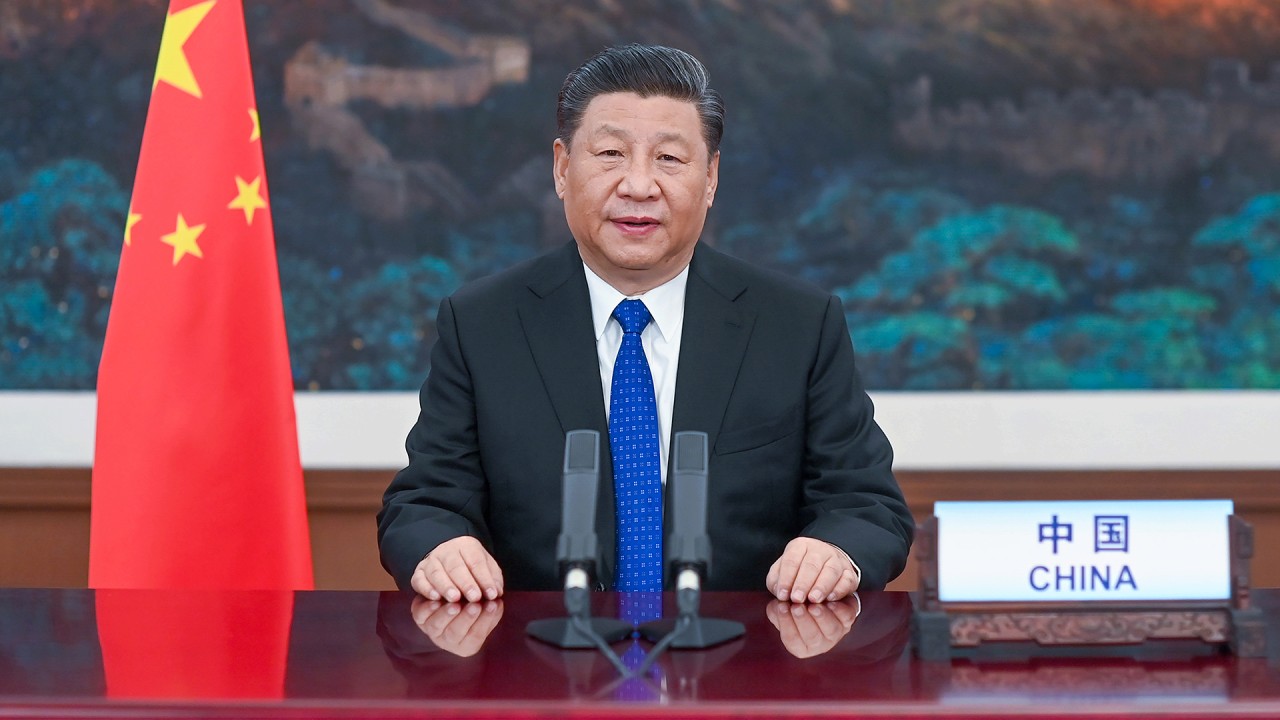
01:57
Xi Jinping tells World Health Assembly China has been transparent on coronavirus
A representative of the German inspection service that issued the certificate to Beijing Aerospace said it had expired and was therefore invalid.
Zhang said his business was legitimate and he had sold scores of ventilators to Australia. He supplied a March invoice that appeared to show an Australian firm called Novelis paid 57.75 million yuan (US$8.1 million) into Shanghai Qianyang’s bank account to buy 150 ACM812A ventilators – a model made by Beijing Aerospace.
The address on the invoice was for a house in the outer Melbourne suburb of Hallam, which Zhang said was being used as a “temporary warehouse” for the ventilators. Australian public records showed the property belonged to Quinee Xu, who is also company secretary of Novelis.
Reached by phone, Xu denied knowing Zhang and said she did not sell ventilators nor had she received any. Although she imported Chinese goods, including medical masks, she said the invoice was fake.
“I’m concerned about my privacy,” Xu later said via WeChat. She could not say why Zhang may have used her company’s name and address.
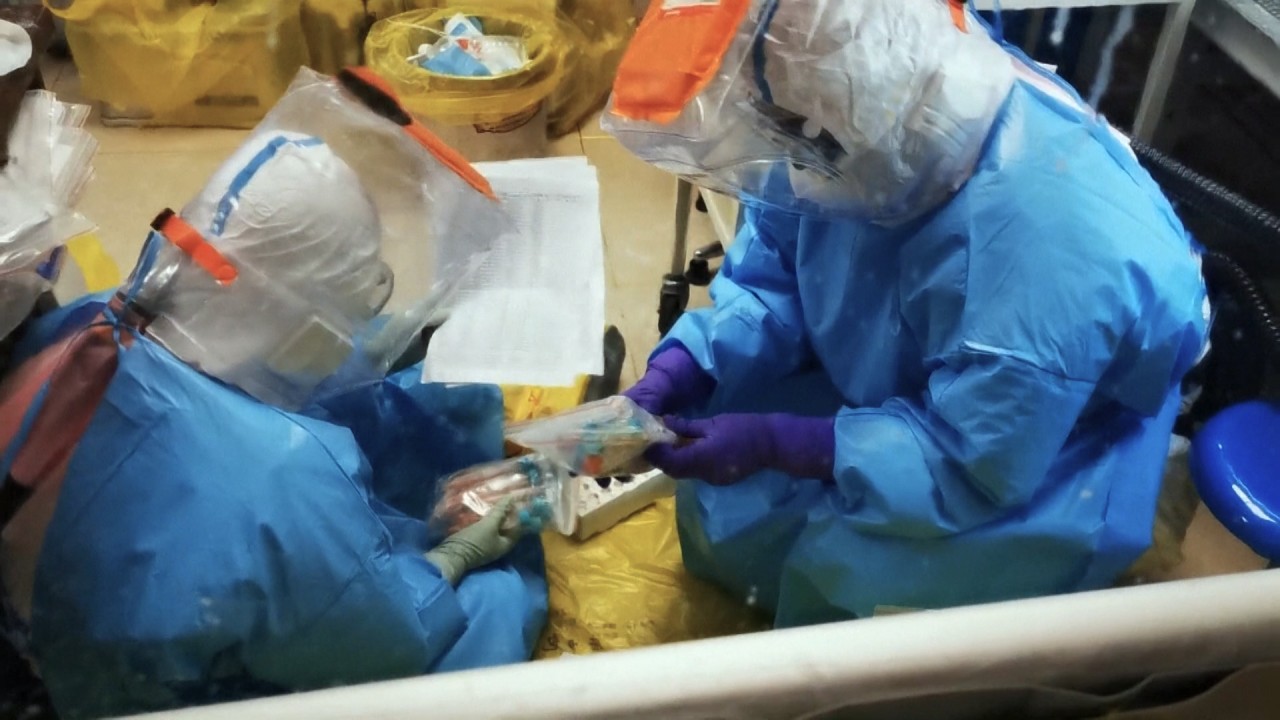
02:40
China’s ‘virus hunters’ on the move, working day and night to fight Covid-19 pandemic
Australian government officials, who did not want to be named, said that even if the invoice had been genuine, it would be illegal to sell or use the devices there because the country’s regulator has not certified Beijing Aerospace ventilators.
These facts did not seem to faze Zhang, who invoked a go-to slogan from the Xi Jinping era. “We all belong to a community with a shared future,” he said. “We’re all making every effort to help more people in need and make more people happy, healthy, and joyous!”
When Zhang was finally told he would be the subject of a story and asked to prove his business was legitimate, he blocked the Post on WeChat and stopped responding to inquiries.
“It’s obvious fraud,” said Steve Dickinson, a lawyer at the US-based law firm Harris Bricken, which advises foreign companies doing business in China. “When companies start coming up with sloppy information like [Zhang’s], buyers just need to stop.”
But in desperate times, some are willing to ignore that advice.
As the coronavirus continues to heap pressure on health care systems, the spike in global demand for medical gear has forced some Chinese factories to simply stop taking new orders. Beijing Aerospace said its backlog for ventilators ran until November.
That is bad news for buyers in countries with spiralling virus cases. Crotty, of Golden Pacific Fashion & Design, said many foreign buyers were conducting risky transactions with local intermediaries.
“Traders from all walks of life are jumping in, looking to make fast money,” said Crotty, a long-time China-based businessman.
While some do sell viable – if overpriced – products, others sell junk. “They’re not concerned about whether the products perform or not … and they can disappear overnight,” he added.
Dickinson said claims of special ties with manufacturers were common. So were convincing certificates that turned out to be fake, invalid, or issued to a different company. Offers to quickly ship high-volume orders in return for cash up front were frequent, too.
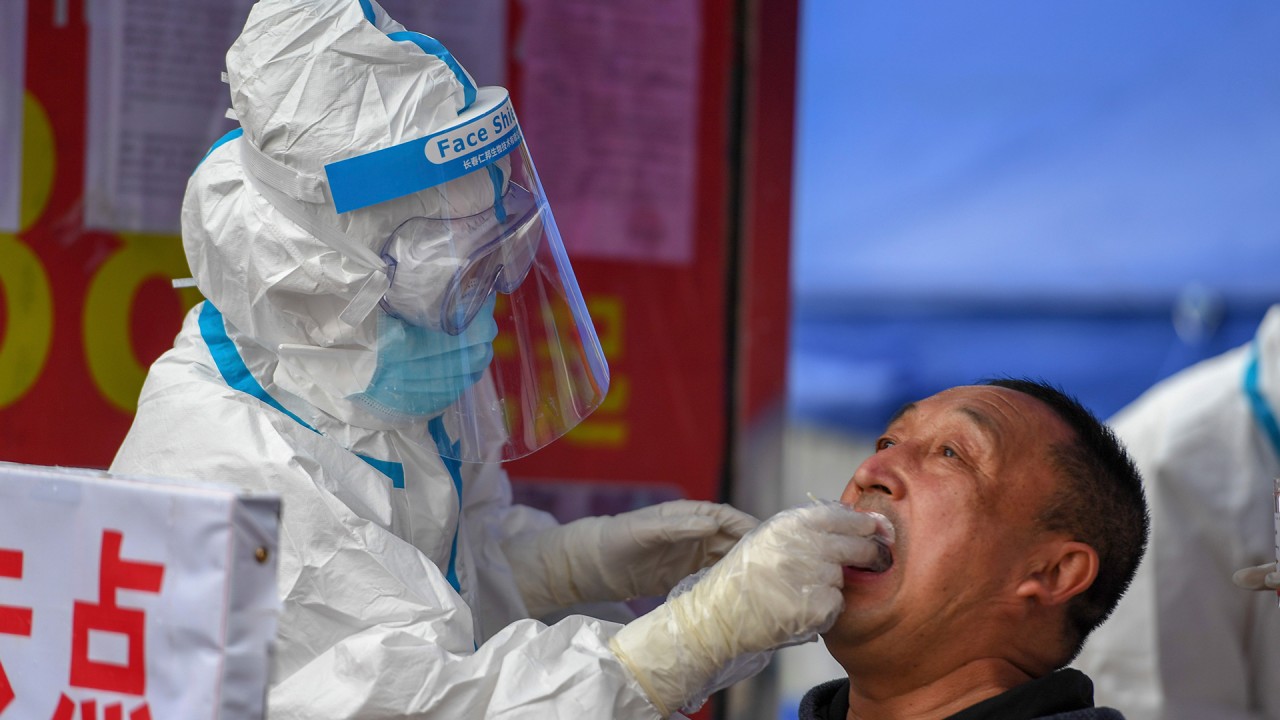
01:56
Coronavirus: lockdown in northeast China strengthen amid fresh outbreak fears
Scam sellers typically dissuade buyers from contacting the manufacturer or conducting other forms of due diligence, such as visiting warehouses where products are stored, he said.
Of nine medical goods suppliers with whom significant product inquiries were made for this story, all but one – a face mask producer in the eastern province of Anhui – provided documentation made out to different companies.
They all claimed business ties with manufacturers allowing them to sell their goods to foreign buyers, but only one produced a contract showing the manufacturer had given them permission to do so.
Most quoted high prices and demanded large upfront payments. One said N95 masks cost US$5.70 per unit, several times more than before the outbreak, though only for orders of at least US$114,000 that were paid half in advance, on top of shipping from China.
There was constant pressure to buy and threats of continuously rising prices. Brokers claimed to have delivered mammoth orders to the US, Brazil and Saudi Arabia, but their evidence included documents with blurred-out company names and certificates that did not appear in official online inspection databases.
Since the virus began spreading beyond China’s borders in February, multiple inspection bodies have warned that forged and invalid product certifications are circulating in China.
The European Safety Federation, a trade association for personal protective equipment, or PPE, suppliers, has warned of bogus certificates bearing the names of major accreditation bodies in Europe and China, including the British Standards Institution (BRI), Polish accreditor ICR Polska and Italy’s Ente Certificazione Macchine (ECM).
BSI said it had received a number of certificates that were “proven to be false from various third parties [that] have included Chinese enquirers. It is apparent that some of these false certificates have been in circulation in China”.
A notice on ICR Polska’s website said it had decided to withdraw and reissue all Covid-19-related certificates handed out between March 1 and March 26, following what appeared to be widespread forgery. ECM maintains a list of fake vendors including dozens of Chinese companies peddling medical products using fake certificates.
Dickinson identified several other red flags for prospective buyers to watch out for. They included new companies or firms that had recently moved into the medical industry from unrelated sectors, others that had no official website, or sellers that could not provide contractual proof of their relationship with a manufacturer.
Still, having those things was no guarantee of legitimacy, Dickinson said.
“If the proposed terms are too good to be true, they usually are,” he said.
For those who do source legitimate medical supplies in China, getting them home is another story.
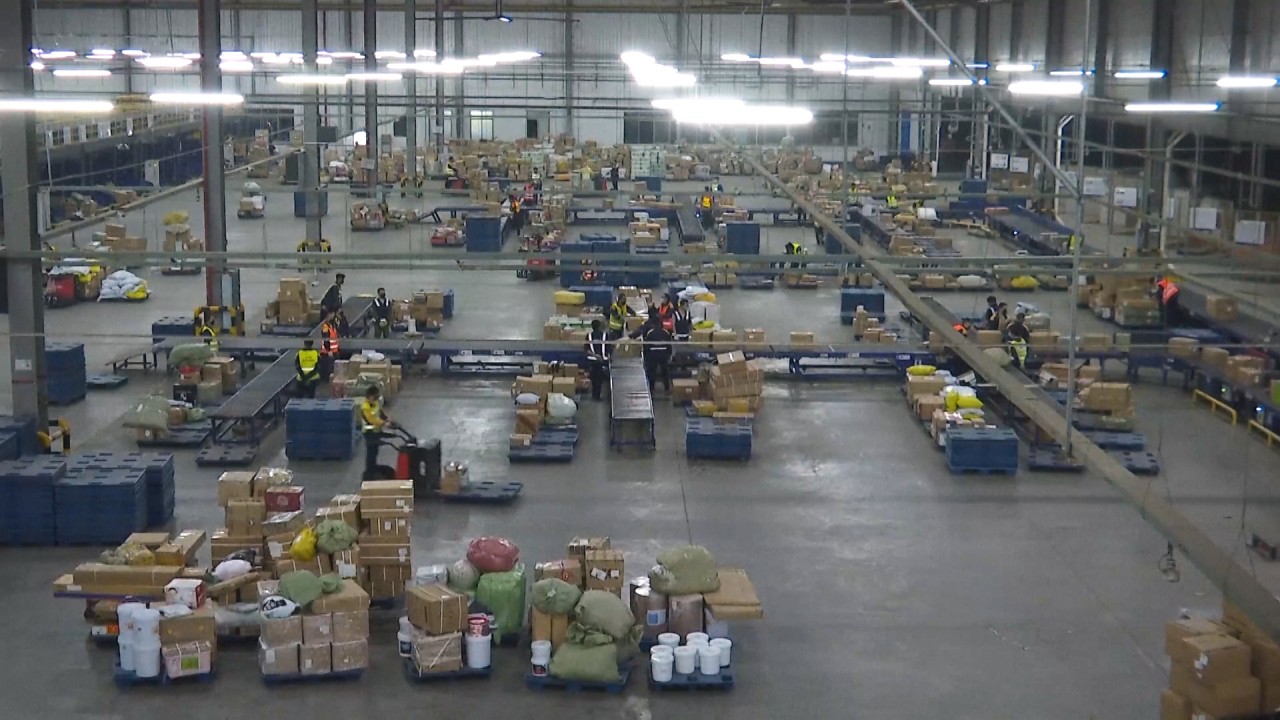
03:32
Some China-made coronavirus test kits and face masks rejected as ‘unreliable’ in European countries
Dramatic cuts to commercial flights, which before the outbreak carried around half of all air cargo, have left shippers scrapping over limited and expensive spots on cargo planes.
But even when by-the-book PPE shipments have left China, concerns and complaints about substandard products have led to changes in customs policy that have left exporters’ heads spinning.
After European buyers complained about defective products, China in April tightened export controls on a range of PPE goods. This further roiled medical-goods supply chains, creating confusion at customs and delaying shipments of much-needed cargo.
Buyers, freight forwarders and legal professionals have been “befuddled” by vague wording and contradictory information in new export rules, Dickinson said.
“[They] put a range of legitimate steps on parties who were exporting, instead of just having it as a free-for-all,” said Nigel Blair, the head of Nihao Global, which has launched a vetted online marketplace for Chinese medical supplies.
The market, however, was still rife with “bootleggers” trying to take advantage of the crisis, he added.